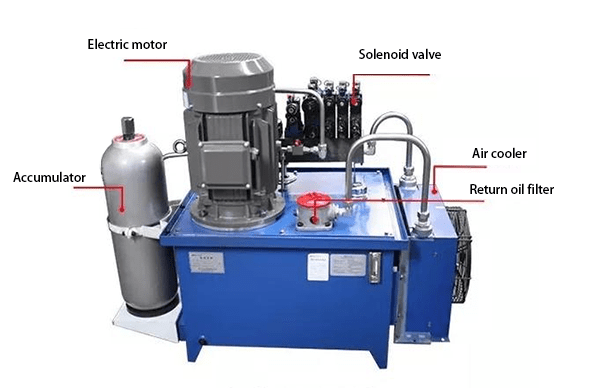When it comes to powering machinery and industrial equipment, two major systems dominate the field: hydraulic systems and pneumatic systems. Both are widely used in various industries, but they operate differently and offer unique advantages. If you’re considering which system to use for your application, understanding their differences is crucial. In this guide, we’ll compare hydraulic systems and pneumatic systems, highlighting their key features, benefits best-use scenarios.
How Do Hydraulic and Pneumatic Systems Work?
At their core, both hydraulic systems and pneumatic systems use fluid power to generate movement and force. However, they use different mediums:
- Hydraulic systems rely on incompressible liquids (typically oil) to transmit power.
- Pneumatic systems use compressed air or gas to perform mechanical tasks.
These fundamental differences impact their efficiency and power range of applications.
Key Differences Between Hydraulic and Pneumatic Systems
1. Power and Strength
Hydraulic systems are known for their incredible power, as liquids are incompressible, they can transmit much greater force compared to compressed air. This makes its components ideal for heavy-duty machinery like construction equipment, hydraulic presses and aircraft control systems.
On the other hand, pneumatic systems generate less force, making them better suited for lightweight applications such as conveyor belts, robotic arms and air-powered tools.
2. Precision and Control
If you require precise control over movement, hydraulic systems offer better stability and smoother operation. Hydraulics allow for fine adjustments in speed and force, making them perfect for applications like lifting systems and industrial presses.
Pneumatic systems, while responsive, are generally less precise due to the compressibility of air, which can lead to slight variations in movement and force output.
3. Maintenance and Durability
Hydraulic systems tend to have more durable hydraulic components, but they require regular maintenance to prevent leaks and contamination. Hydraulic oil must be kept clean and seals need to be checked frequently to maintain efficiency.
Pneumatic systems are often easier to maintain because air is readily available and leaks are not as critical. However, moisture in the compressed air can cause wear and tear, requiring proper filtration and drainage.
4. Cost and Efficiency
Initial costs for hydraulic systems can be higher due to the need for hydraulic power packs, pumps and fluid reservoirs. However, they provide superior energy efficiency and power output over time, making them cost-effective for long-term, heavy-duty applications.
Pneumatic systems generally have lower upfront costs but require continuous energy input to compress air, making them less efficient in energy consumption over extended use.
5. Portability and Space Requirements
If space is a concern, pneumatic systems are often the better choice. They are lighter, more compact and easier to install in small spaces. A portable air compressor can supply the necessary airflow without requiring a fixed installation, making pneumatic systems even more adaptable. Hydraulic systems, while more powerful, require larger hydraulic components like pumps and reservoirs, which can be bulky and harder to move.
Advantages of Hydraulic Systems
- High power density: Ideal for heavy machinery and lifting applications.
- Precise control: Suitable for tasks requiring smooth, controlled movement.
- Durability: Can handle high-pressure loads with minimal wear and tear.
- Efficiency: Delivers consistent performance in demanding conditions.
Advantages of Pneumatic Systems
- Lightweight and portable: Ideal for applications requiring mobility.
- Lower maintenance: Less risk of fluid contamination and leaks.
- Safer operation: No risk of hazardous fluid spills.
- Fast response time: Excellent for quick, repetitive motions in automation.
Which System Should You Choose?
The decision between hydraulic systems and pneumatic systems depends on your specific needs:
- Hydraulic power packs and components are great for industrial operations requiring high force, precision and durability.
- If you require a lightweight, cost-effective and easy-to-maintain system, pneumatic systems may be more suitable.
Invest in the Right System
Both hydraulic systems and pneumatic systems have their place in modern industry. By understanding their strengths and limitations, you can make an informed decision that maximizes efficiency and performance for your application.
Whether you’re investing in hydraulic systems for heavy-duty machinery or a pneumatic system for lightweight applications, getting it from a reputed and reliable company can ensure long-term success.







Leave a Reply